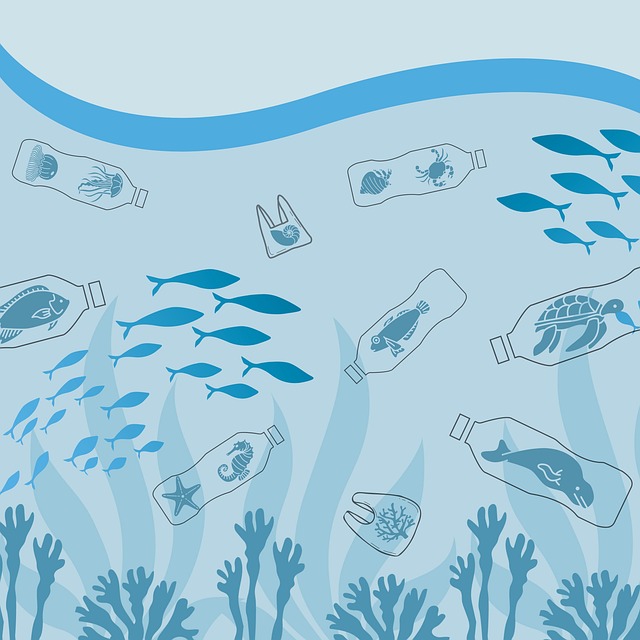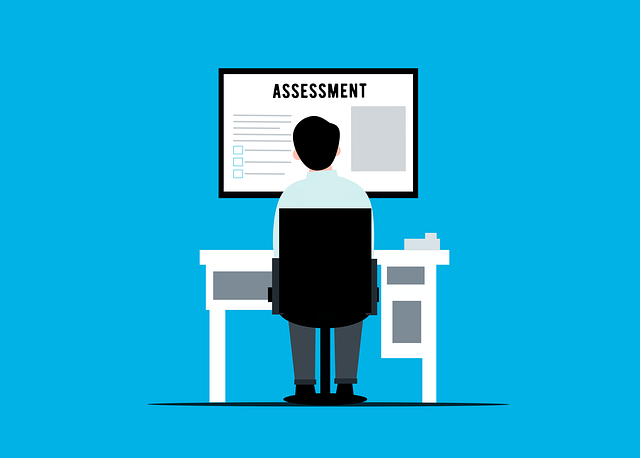In the UK, Environmental Impact Assessments (EIAs) are legally required, demanding precise translations for international projects. Professional translators with environmental expertise are crucial for accurate communication, avoiding delays and miscommunications. These services ensure regulatory compliance, meet sustainability standards, and streamline review processes. With stringent UK regulations, specialized translation services are indispensable for successful EIA submissions, offering linguistic precision, cultural sensitivity, and technical terminology expertise. Choosing a reputable service specializing in environmental assessments is key to navigating complex language and regulatory hurdles, ensuring project approval and minimizing financial risks.
“Navigating environmental regulations in the UK often requires precise documentation, especially during Environmental Impact Assessments (EIA). This is where certified translations play a pivotal role. In this comprehensive guide, we explore the intricate process of translating EIA documents to meet UK standards. From understanding the assessment’s significance to overcoming translation challenges and choosing the right service provider, we delve into the essential steps. Discover why accurate translations are vital for compliance and how they can streamline your environmental submissions.”
- Understanding Environmental Impact Assessments in the UK
- The Role of Accurate Translations in EIA Process
- Why Certified Translations are Essential for Compliance
- Common Challenges in Translating Environmental Documents
- Types of Languages Required for UK Environmental Submissions
- Choosing the Right Translation Service Provider
- Ensuring Quality and Precision in Technical Translations
- Time-Saving Tips for Efficient Translation Processes
- Case Studies: Successful Translations in UK Environmental Projects
Understanding Environmental Impact Assessments in the UK

In the UK, Environmental Impact Assessments (EIAs) are crucial processes that evaluate the potential effects of projects on the environment. They play a pivotal role in ensuring that developments align with environmental protection and sustainability standards. For any project involving significant impacts or certain types of activity, an EIA is mandatory under the UK’s Environmental Protection Act. This legal framework requires developers to identify, predict, and mitigate any adverse ecological, social, and economic consequences.
When it comes to navigating these assessments, especially for multinational corporations or international projects, translation services for UK EIAs become indispensable. Accurate translations ensure that all relevant documents, reports, and data are accessible and understood by the necessary stakeholders, including regulatory bodies. Professional translators with environmental expertise can help convey technical terminology accurately, facilitating a smoother review process and potentially avoiding delays or miscommunications.
The Role of Accurate Translations in EIA Process

In the intricate process of Environmental Impact Assessment (EIA), accurate translations play a pivotal role, especially in the UK context where submissions must adhere to stringent regulatory standards. Certified translation services are indispensable for ensuring that environmental reports, studies, and data are conveyed clearly and precisely across various languages. This is crucial as any misinterpretation can lead to significant delays or even rejection of the assessment.
For UK-based organizations conducting EIAs, engaging professional translation services specializing in environmental documents is essential. These services not only provide linguistic accuracy but also guarantee cultural sensitivity, ensuring that the translated content aligns with the local context and regulatory framework. With the increasing globalization of projects and the need for cross-border cooperation, translation services for UK Environmental Impact Assessments have become a game-changer, fostering effective communication and facilitating smoother, more efficient environmental reviews.
Why Certified Translations are Essential for Compliance

In the realm of environmental submissions in the UK, clear and accurate communication is paramount to ensure compliance with stringent regulations. Certified translations play a pivotal role here, serving as the bridge between diverse languages and legal frameworks. When dealing with documents like Environmental Impact Assessments (EIA), where precision and context are critical, professional translation services become indispensable.
These certified translations go beyond mere word-for-word translation. They involve subject matter experts who grasp the nuances of environmental terminology and regulatory contexts. This ensures that the translated document not only conveys the exact meaning but also adheres to the legal and technical standards required by UK authorities. Thus, utilizing translation services for UK Environmental Impact Assessments is not just a convenience, but an essential step towards navigating the complex landscape of environmental compliance successfully.
Common Challenges in Translating Environmental Documents

When it comes to environmental submissions in the UK, accuracy is paramount. However, translating documents like Environmental Impact Assessments (EIA) presents unique challenges. One of the primary hurdles is capturing not just the linguistic nuances but also the technical terminology specific to environmental science and policy. Misinterpretations can lead to delays or even rejection of applications, with potential financial and reputational consequences for companies.
Another common challenge lies in ensuring cultural sensitivity and compliance with local regulations. What may be an acceptable phrase in one country might not translate well into another, and environmental terminology often has subtle variations across languages. Moreover, deadlines play a crucial role; the pressure to meet stringent submission timelines can make accurate translation a significant hurdle. Thus, relying on professional translation services specializing in UK environmental assessments is essential for navigating these complex challenges successfully.
Types of Languages Required for UK Environmental Submissions

When it comes to environmental submissions in the UK, the languages required can vary greatly depending on the specific project and location. Common languages include English, of course, as the official language, but many projects involve documents in European languages like French, German, or Dutch, especially when cross-border impact assessments are involved.
For more specialized or international submissions, you might need to translate from less commonly used languages, such as Greek, Italian, or Spanish. Translation services for UK Environmental Impact Assessments must be accurate and reliable, often requiring experts with specific environmental terminology knowledge to ensure the integrity of the information being conveyed.
Choosing the Right Translation Service Provider

When it comes to environmental submissions, choosing a reputable and certified translation service is paramount. Look for providers who specialise in technical translations, especially within the realm of environmental impact assessments (EIA). This ensures that your documents receive accurate and contextually appropriate treatment, as these assessments often involve complex terminology and nuanced language.
Reputable firms will employ translators with specific expertise in environmental science or law to handle such submissions. They should also offer quality assurance processes, including proofreading and editing, to guarantee error-free translations. Additionally, consider providers who can offer rapid turnaround times without compromising accuracy, as the UK’s regulatory bodies often have strict deadlines for environmental submissions.
Ensuring Quality and Precision in Technical Translations

When it comes to environmental submissions, especially in the UK, accuracy is paramount. As such, certified translations from professional services are crucial for ensuring the integrity of your documents. Translation errors can lead to misunderstandings and delays, which are particularly problematic in the stringent regulatory environment surrounding environmental impact assessments (EIA).
Choosing the right translation service for your UK EIA submissions is therefore an investment in the success of your project. Look for providers with expertise in technical translations, particularly within the environmental sector. They should employ native speakers and have a proven track record of delivering high-quality work. This ensures that not only are the words translated accurately but also that the complex scientific and regulatory terminology used in EIAs is conveyed precisely.
Time-Saving Tips for Efficient Translation Processes

When navigating the complex process of environmental impact assessments, efficient translation is key to ensuring your submissions meet regulatory standards and deadlines. To save time and streamline your workflow, consider these tips for a smoother translation experience:
1. Choose Reputable Translation Services: Opting for professional translation services specialised in environmental documents can significantly reduce turnaround times. These experts not only possess the linguistic skills but also have a deep understanding of industry jargon and regulations. They can handle complex terminologies accurately and consistently, ensuring your assessment remains robust and compliant.
2. Prepare Your Documents Wisely: Before engaging translation services, organise your documents efficiently. Create separate files for text, tables, and figures to allow translators to work in parallel, accelerating the overall process. Ensure all source files are complete, with clear headings, proper formatting, and any necessary metadata intact. This preparation enables translators to deliver high-quality translations faster.
Case Studies: Successful Translations in UK Environmental Projects

In recent years, there has been a notable increase in the demand for professional translation services within the UK’s environmental sector. This is primarily driven by the growing complexity and international reach of environmental impact assessments (EIAs). Case studies from successful UK environmental projects highlight the importance of precise and accurate translations in ensuring compliance with regulatory requirements. For instance, a multinational energy company faced challenges during an EIA for a proposed wind farm off the coast of Scotland. The project team encountered language barriers while engaging with local communities and stakeholders, which threatened to delay the approval process. They partnered with specialized translation services that provided native-language experts to handle technical documents, ensuring clear communication and community buy-in.
Another compelling example involves a conservation organization working on a transboundary ecosystem protection initiative involving several European countries. Accurate translations of scientific research and stakeholder proposals were crucial in building a unified front among the participating nations. The organization collaborated with translation companies that not only delivered timely translations but also maintained the integrity of technical terminology, facilitating effective discussions and decisions at international forums. These real-world applications underscore the vital role that translation services play in facilitating successful UK environmental projects, ensuring that critical communications are accessible and understandable to all stakeholders involved.
When navigating the complex world of UK environmental regulations, accurate and certified translations are indispensable. As evidenced by our exploration of successful case studies, professional translation services play a pivotal role in ensuring compliance and facilitating efficient project management. By choosing reputable providers that specialize in technical translations and adhering to best practices, organizations can streamline their Environmental Impact Assessment processes, meet legal requirements, and contribute to sustainable development across the UK and beyond. Effective communication through precise translations empowers stakeholders to make informed decisions, fostering a more transparent and responsible environmental landscape.
